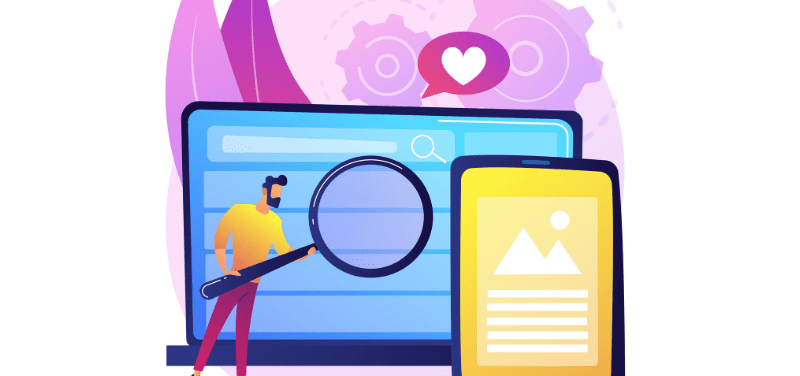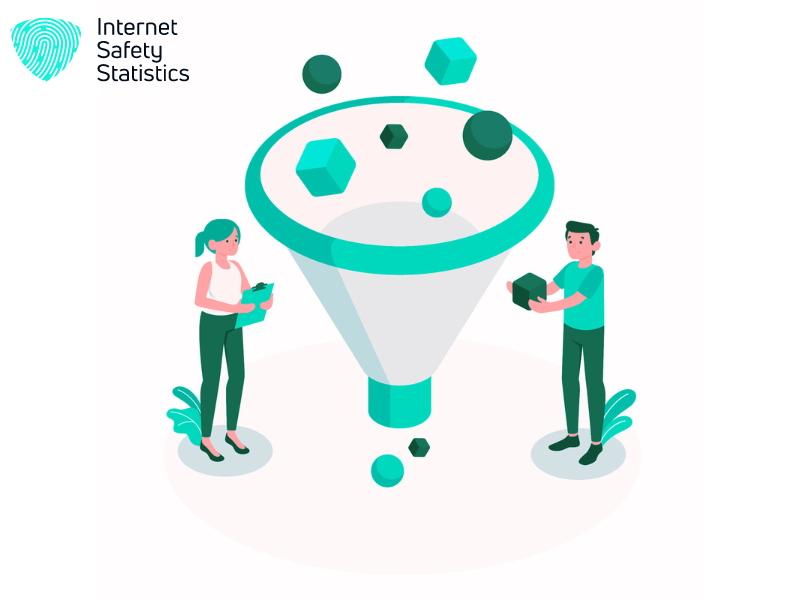
The internet, a cornerstone of modern connectivity, permeates every aspect of daily life, offering vast opportunities alongside significant risks. While anti-virus software protects computers from digital threats, safeguarding children from inappropriate online content remains a critical concern. With children of varying ages in households, this task becomes even more challenging. Internet filters provide a solution, enabling parents to control access to unsuitable websites and ensure a safer online environment for their children, regardless of age.
The internet’s expansive content encompasses valuable information and potentially harmful material, posing risks such as exposure to explicit content, malicious websites, and misinformation. Internet filters address these challenges by managing access to online content, promoting productivity, and shielding users from harmful influences. In educational institutions, workplaces, and homes, internet filters play a pivotal role in creating secure online environments, particularly for vulnerable populations like children.
Understanding Internet Filters

Internet filters are software tools designed to regulate and control access to online content, allowing users to block or restrict certain websites, pages, or types of content based on predefined criteria. Their primary function is to filter and manage the flow of information on the internet, enabling users to navigate the digital landscape more safely and efficiently.
Types of Internet Filters
- Content-Based Filters: These filters analyse the actual content of web pages and digital media to determine their suitability for access. They often employ keyword matching, image recognition, and text analysis algorithms to identify and filter out objectionable or inappropriate content.
- URL Filters: URL-based filters operate by maintaining a database of website addresses categorised according to content type or suitability. Users can configure these filters to block access to specific websites or entire categories of sites based on their URLs.
- DNS Filters: Domain Name System (DNS) filters work by intercepting and redirecting domain name resolution requests, effectively blocking access to undesirable websites at the network level. By filtering DNS queries, these tools can prevent users from accessing malicious or inappropriate content before it even reaches their devices.
How Internet Filters Work
Internet filters operate through a combination of technological mechanisms and user-defined parameters to control access to online content. Understanding how internet filters work involves exploring their filtering techniques, user configurations, and underlying processes:
Filtering Techniques
Internet filters employ various filtering techniques to determine which content should be allowed or blocked. These techniques include:
- Keyword Filtering: Filters scan web pages and digital content for specific keywords or phrases that match predefined criteria. If a webpage contains flagged keywords, the filter may block access to it.
- URL Filtering: Filters maintain databases of website addresses categorised according to content type or suitability. Users can configure filters to block access to specific URLs or entire categories of websites.
- Image Recognition: Some advanced filters analyse images on web pages to identify potentially objectionable content, such as nudity or violence.
- Machine Learning: Modern filters may use machine learning algorithms to analyse patterns and trends in online content, enabling more accurate identification and classification of inappropriate material.
User Configurations
Users can customise internet filters to align with their specific needs and preferences by configuring filtering parameters and access policies. Key aspects of user configurations include:
- Setting Access Levels: Users can define different levels of access for different individuals or groups, allowing more granular control over internet usage.
- Defining Exceptions: Users can create exceptions for certain websites, pages, or content categories that they deem appropriate, even if they would typically be blocked by the filter.
- Time-Based Restrictions: Filters can be configured to restrict access to certain types of content during specific times of the day or week, such as limiting access to social media during work hours or bedtime.
Underlying Processes
Internet filters typically operate either at the device level or the network level, depending on the implementation:
- Device-Level Filters: Installed directly on individual devices such as computers, smartphones, or tablets, device-level filters provide personalised protection regardless of the network being used.
- Network-Level Filters: Implemented at the network level, these filters intercept and analyse internet traffic passing through routers, gateways, or proxy servers. Network-level filters are often used in educational institutions, workplaces, and public Wi-Fi networks to enforce consistent filtering policies across multiple devices.
Legal and Ethical Considerations
As powerful tools for controlling access to online content, internet filters raise important legal and ethical considerations. While they can help protect users from harmful or objectionable material, internet filters also have the potential to infringe upon individual freedoms of expression and access to information. Moreover, the effectiveness and accuracy of internet filters in distinguishing between appropriate and inappropriate content are not without controversy, with concerns about overblocking, underblocking, and censorship. Therefore, it is essential for users and organisations to consider the legal and ethical implications of implementing internet filters and to balance the need for online safety with respect for privacy and freedom of speech.
Internet filters have become indispensable tools for individuals, families, and organisations seeking to navigate the complexities of the digital world. By understanding their functionality, types, and underlying principles, users can make informed decisions about implementing internet filters to enhance online security and promote responsible internet usage. Additionally, ongoing dialogue and engagement with legal and ethical considerations surrounding internet filtering practices are crucial for fostering a safe, open, and inclusive online environment for all users.
Importance of Internet Filters

The importance of internet filters cannot be overstated in today’s digital landscape, where cyber threats lurk at every corner. These filters act as our digital guardians, standing between us and malicious content like malware, phishing scams, and deceptive websites. By blocking access to known sources of trouble, internet filters shield both individuals and organisations from the devastating consequences of cyberattacks, keeping our data safe and our wallets intact.
Internet filters are like superheroes for protecting children and vulnerable audiences from stumbling upon inappropriate or harmful content online. With the internet’s vast array of explicit material and violent imagery, kids are especially at risk. Internet filters give parents and caregivers the tools they need to create safe online havens for children, blocking objectionable content and promoting responsible internet habits. With these filters in place, families can navigate the digital world with confidence, knowing their loved ones are protected from harm.
In work environments, internet filters serve as invaluable allies in the battle against distraction and procrastination. By blocking access to non-work-related websites and social media platforms, these filters help employees stay focused on their tasks and boost overall productivity. Internet filters play a crucial role in maintaining network security, acting as gatekeepers that filter out malicious websites, phishing attempts, and other cyber threats. With internet filters in place, organisations can operate with peace of mind, knowing their networks and sensitive data are protected from external attacks and internal vulnerabilities.
Free Internet Filtering
In the latest version of Windows, including Windows 11, users can activate a free internet filter feature. For those browsing with Google Chrome, Firefox, and Microsoft Edge, extensions are available for internet filtering. These extensions are easily installable and provide basic internet filtering capabilities that can be set up and utilised immediately. However, if you need to customise access restrictions for different age groups, such as an eight-year-old versus a fifteen-year-old, you may require a more advanced filtering solution with additional functionality.
Internet Filtering Software
Internet filtering software plays a crucial role in managing and controlling access to online content, promoting online safety, productivity, and compliance with organisational policies. Here are some popular internet filtering software options:
- Norton Family Premier: Norton Family Premier offers comprehensive parental control features, including internet filtering, time management, and activity monitoring. It allows parents to block inappropriate websites, set time limits for internet usage, and receive alerts about their children’s online activities.
- McAfee Safe Family: McAfee Safe Family provides parental control and internet filtering capabilities to help parents protect their children online. It allows parents to block specific websites or categories of content, monitor online activities, and set screen time limits across multiple devices.
- Net Nanny: Net Nanny is a powerful internet filtering software designed to protect families from inappropriate content and online threats. It offers customisable web filtering, social media monitoring, and time management features, allowing parents to create a safe and healthy online environment for their children.
- Kaspersky Safe Kids: Kaspersky Safe Kids offers advanced parental controls and internet filtering tools to help parents safeguard their children online. It allows parents to block access to inappropriate websites, monitor online activities, and set time limits for internet usage across multiple devices.
- FamilyTime: FamilyTime is a comprehensive parental control app that includes internet filtering, app blocking, and location tracking features. It allows parents to block access to specific websites, monitor social media activity, and track their children’s device usage in real-time.
- Qustodio: Qustodio is a popular parental control and internet filtering solution that offers customisable filtering rules, time management features, and activity monitoring tools. It allows parents to block inappropriate content, set screen time limits, and receive alerts about their children’s online activities.
- Symantec Content & Malware Analysis: Symantec Content & Malware Analysis is an enterprise-grade internet filtering solution designed to protect organisations from web-based threats. It offers advanced content filtering, malware detection, and threat intelligence capabilities to help organisations safeguard their networks and sensitive data.
- Sophos Web Filtering: Sophos Web Filtering is a cloud-based internet filtering solution that provides organisations with granular control over web access and content. It allows administrators to create and enforce web usage policies, block access to malicious websites, and monitor internet activity across all devices on the network.
When choosing internet filtering software, consider factors such as the level of customisation, ease of use, compatibility with existing systems, and customer support options. Selecting the right internet filtering software can help individuals and organisations create a safer and more secure online environment for users while promoting responsible internet usage.
How to Bypass Internet Filters
If it can be blocked, it can be unblocked. Extensions such as Chrome’s Web blocker are easy to bypass, as are other off-the-shelf, free internet filters. Google Chrome’s Stay Focused, which you can add to your computer from the Google app store, is password protected, so bypassing the internet filter is more difficult. Knowing that your kids can bypass internet filters, even if they don’t know how yet, should lead you to use the most powerful internet filter possible.
Knowing how to bypass internet filters can come in handy if you want more access to your work computer than is being allowed (this may violate acceptable use policies, terms of service agreements, or legal regulations, though). However, when it comes to your children’s safety, a stronger internet filter is suggested. Kids are smart, and just as you may try to get around your internet filters at work, they are going to try and, at some point, succeed.
Internet filters represent a vital aspect of our digital toolkit, offering protection, guidance, and peace of mind in an increasingly interconnected world. However, they must be complemented by education, communication, and digital literacy initiatives. Empowering your kids to make informed decisions, critically evaluate online information, and navigate digital spaces responsibly is essential for fostering a culture of online safety and resilience.
